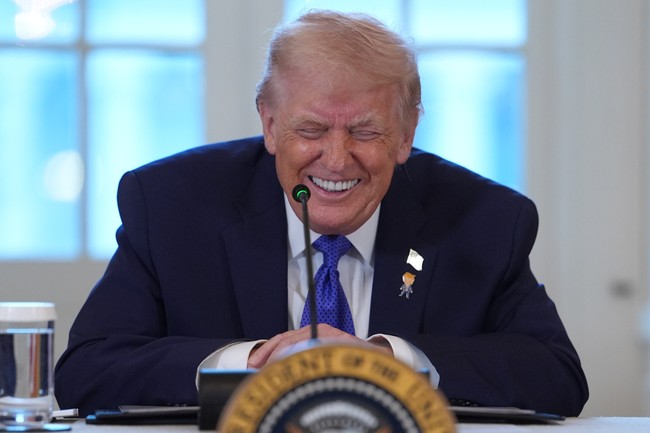A federal judge appointed by former President Joe Biden has blocked President Donald Trump from cutting billions of dollars in foreign aid, setting up a legal clash between the executive branch and the courts, as reported by The Gateway Pundit.
U.S. District Judge Amir Ali, who sits in Washington, ruled Wednesday night that the administration must comply with congressional appropriations and cannot withhold or cancel funds without legislative approval.
The ruling covers approximately $4 billion of the $11.5 billion in foreign aid appropriated for 2024, scheduled to expire at the end of September.
Judge Ali wrote that the administration had “given no justification to displace the bedrock expectation that Congress’s appropriations must be followed.” The decision also applies to portions of foreign aid from prior appropriations cycles that are due to expire on the same date.
The White House confirmed Thursday that the ruling will be appealed.
“President Trump has the executive authority to ensure that all foreign aid is accountable to taxpayers and aligns with the America First priorities people voted for,” spokeswoman Anna Kelly said in a statement to Reuters.
The dispute over foreign aid has been ongoing throughout the year. Earlier in 2024, Judge Ali temporarily blocked the Trump administration from canceling contracts tied to foreign assistance programs.
This Could Be the Most Important Video Gun Owners Watch All Year
Following Trump’s executive order to halt new foreign aid grants, Secretary of State Marco Rubio issued guidance pausing most foreign aid spending for a 90-day review.

Judge Ali previously argued that the freeze caused “enormous harm,” and in March ordered the administration to restore funding for contractors.
Trump officials have countered that a temporary halt was necessary to ensure the programs were subject to accountability and oversight.
The latest ruling raises broader questions about executive authority over federal spending. President Trump has sought to align U.S. foreign aid with his administration’s priorities, repeatedly stating that taxpayer dollars should not be spent without greater accountability.
The court’s decision, however, maintains that only Congress can change appropriations once enacted.
The appeal process is expected to move quickly given the September 30 deadline for unused funds to expire. Legal analysts say the case could ultimately reach the Supreme Court if appellate courts issue conflicting rulings.
The opinions expressed by contributors and/or content partners are their own and do not necessarily reflect the views of LifeZette. Contact us for guidelines on submitting your own commentary.
Read the full article here







![Tom Brady Drops One-Word Verdict on Bad Bunny’s Super Bowl Halftime Performance [WATCH] Tom Brady Drops One-Word Verdict on Bad Bunny’s Super Bowl Halftime Performance [WATCH]](https://www.drewberquist.com/wp-content/uploads/2026/02/2026.02.09-01.25-drewberquist-6989e05c04e84.jpg)




